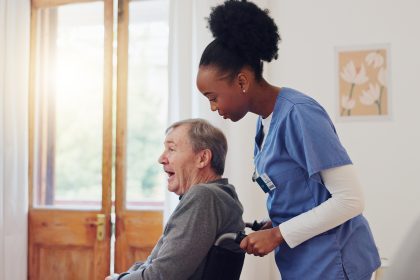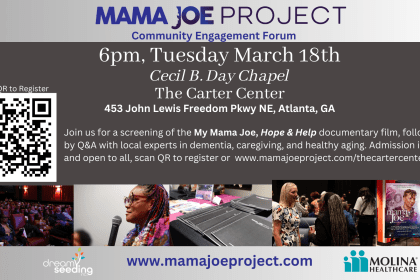The journey of caring for someone with Parkinson’s disease transforms both the life of the person with the condition and those who provide their support. As this progressive neurological disorder advances, caregivers often find themselves navigating increasingly complex physical, emotional, and logistical challenges. The role extends far beyond medication management to encompass mobility assistance, emotional support, advocacy, and coordination of multiple healthcare services. This comprehensive guide explores the essential support systems available to Parkinson’s caregivers, offering practical strategies to maintain both quality care and personal wellbeing throughout the caregiving journey.
Education and knowledge resources
Knowledge serves as the foundation of effective Parkinson’s caregiving. Understanding the disease trajectory, treatment options, and symptom management techniques empowers caregivers to provide informed care while recognizing when to seek additional support. Comprehensive education helps caregivers distinguish between symptoms that require immediate medical attention and those that can be managed at home.
The first months following diagnosis often overwhelm caregivers with information. Many report feeling inadequately prepared for the complexities of Parkinson’s care, particularly the non-motor symptoms like cognitive changes, sleep disturbances, and mood disorders that often receive less attention than the more visible tremors and mobility issues. Specialized education programs for caregivers address this knowledge gap through staged learning approaches that introduce information at appropriate intervals.
Digital learning platforms now offer on-demand caregiver education through video tutorials, interactive modules, and virtual reality simulations demonstrating proper transfer techniques, fall prevention strategies, and methods to assist with activities of daily living. These resources allow caregivers to learn at their own pace while practicing skills in a low-pressure environment before applying them in real-world situations.
Disease progression education proves particularly valuable, as Parkinson’s symptoms fluctuate not only throughout disease stages but even within a single day. Understanding these fluctuations helps caregivers anticipate needs and plan activities during optimal “on” periods when medications provide better symptom control. This knowledge reduces frustration for both the caregiver and the person with Parkinson’s while maximizing functional independence.
Professional care partners and respite options
Even the most dedicated caregivers cannot provide round-the-clock care indefinitely without support. Professional care partners and respite services offer crucial relief that prevents burnout while ensuring the person with Parkinson’s receives consistent care. These services range from occasional assistance to regular scheduled support.
Home health aides with specialized training in Parkinson’s care can assist with daily activities while reinforcing the therapy goals established by healthcare providers. The most effective partnerships develop when these aides receive condition-specific training beyond general certification, particularly in areas like medication timing, recognizing “on/off” fluctuations, and safe transfer techniques appropriate for Parkinson’s-related mobility issues.
Adult day programs designed with Parkinson’s-specific activities provide cognitive stimulation, physical exercise, and social engagement for the person with Parkinson’s while offering caregivers scheduled respite. The most beneficial programs incorporate physical therapy elements, speech exercises, and activities that address both motor and non-motor symptoms in a supportive community environment.
Residential respite care offers more extended relief, allowing caregivers to attend to their own health needs, family obligations, or simply rest. These temporary care arrangements in assisted living facilities or specialized care centers typically range from a few days to several weeks. Planning these breaks at regular intervals rather than waiting until crisis points helps maintain caregiver wellbeing throughout the caregiving journey.
Overnight care assistance addresses the significant sleep disturbances common in advancing Parkinson’s disease. Professional caregivers can manage nighttime symptoms like REM sleep behavior disorder, frequent awakening, and toileting needs, allowing family caregivers to obtain restorative sleep. This targeted support often proves more sustainable than full-time residential care when daytime caregiving arrangements work effectively.
Financial and legal planning assistance
The economic impact of Parkinson’s disease extends far beyond medication costs to include potential income loss, home modifications, specialized equipment, and increasing care needs over time. Early financial and legal planning helps families navigate these challenges while preserving resources for future care requirements.
Financial counselors specialized in chronic disease management can help caregivers develop sustainable long-term financial strategies that account for disease progression. These professionals assist with accessing benefits like disability insurance, Medicare coverage, veterans benefits, and pharmaceutical assistance programs that offset care expenses. Their expertise proves particularly valuable when navigating the complex application requirements for these programs.
Elder law attorneys with experience in Parkinson’s cases help families establish essential legal documents including healthcare powers of attorney, advance directives, and estate planning instruments. These preparations ensure care preferences remain honored even when communication becomes difficult, while protecting assets needed for ongoing care. The most effective planning includes periodic review as disease progression and care needs evolve.
Long-term care insurance consultation helps families understand coverage options, eligibility requirements, and benefit limitations for different care arrangements. Even when diagnosed, some specialized policies may remain available, though they typically come with higher premiums or waiting periods. Insurance specialists can identify the most cost-effective approaches to financing future care needs while preserving family resources.
Employment accommodation guidance supports caregivers balancing work responsibilities with caregiving duties. Benefit specialists can explain Family and Medical Leave Act provisions, employer-specific paid leave programs, and flexible scheduling options that help caregivers maintain employment while meeting care obligations. This assistance proves especially valuable as caregiving responsibilities intensify over time.
Emotional and psychological support
The emotional burden of Parkinson’s caregiving often exceeds the physical demands, particularly as the disease affects cognition, communication, and the relationship dynamics between caregiver and care recipient. Structured emotional support systems address caregiver grief, stress, and relationship changes throughout the disease trajectory.
Caregiver-specific counseling offers safe spaces to process complex emotions including grief over progressive losses, guilt about negative feelings, and anxiety about future care challenges. Therapists specialized in chronic illness caregiving help normalize these emotions while developing healthy coping strategies. The most effective approaches acknowledge the unique aspects of Parkinson’s caregiving, particularly the prolonged nature of the journey and the cognitive changes that often affect relationships.
Peer support groups connect caregivers facing similar challenges, reducing isolation while providing practical advice from those with firsthand experience. These groups offer validation, problem-solving strategies, and emotional release unavailable from other sources. Online options have expanded access for caregivers with limited mobility or time constraints, creating virtual communities accessible regardless of location or schedule.
Mindfulness and stress reduction programs teach caregivers techniques to manage the chronic stress inherent in Parkinson’s care. Research indicates these approaches effectively reduce caregiver anxiety, improve sleep quality, and enhance overall wellbeing. Specialized programs address caregiver-specific challenges like managing unpredictable symptoms, coping with personality changes, and finding moments of peace amid demanding care routines.
Relationship counseling helps couples navigate the transition from partners to caregiver-care recipient while preserving emotional intimacy. These interventions address communication challenges, role adjustments, and strategies to maintain connection despite physical limitations. For adult children serving as caregivers, family therapy helps resolve long-standing dynamics that may complicate the caregiving relationship.
Home modification and adaptive equipment resources
The home environment significantly impacts both independence for the person with Parkinson’s and physical demands on caregivers. Thoughtful modifications and appropriate equipment can prevent falls, reduce caregiver strain, and extend the person’s ability to remain at home safely through disease progression.
Home safety assessments conducted by occupational therapists identify specific environmental hazards while recommending targeted modifications based on the individual’s symptoms and the home’s layout. These evaluations consider factors like freezing of gait, balance impairment, and visual-spatial difficulties common in Parkinson’s disease. The resulting recommendations typically balance immediate safety needs with anticipated future requirements as symptoms progress.
Adaptive equipment specialists help caregivers select appropriate mobility aids, bathroom safety devices, and daily living tools specific to Parkinson’s-related challenges. The most effective approaches involve trying equipment before purchase and receiving proper training in its use. This expertise proves particularly valuable for items like specialized lift chairs that accommodate Parkinson’s mobility patterns, weighted utensils to manage tremor, and communication devices for those with speech difficulties.
Smart home technology increasingly offers solutions for Parkinson’s caregiving challenges through voice-activated controls, motion-sensor lighting, medication reminders, and remote monitoring systems. These technologies can reduce caregiver workload while supporting independence for the person with Parkinson’s. Integration of these systems works best when implemented gradually with appropriate training for both caregiver and care recipient.
Funding assistance for home modifications comes through various programs including Medicaid waivers, veterans benefits, local aging services, and condition-specific organizations. Navigating these funding sources often requires persistence and documentation of medical necessity. Resource specialists can identify available programs while assisting with application processes that often prove complex and time-consuming.
Healthcare coordination support
Managing the complex medical needs of someone with Parkinson’s typically involves multiple specialists, therapists, and support services. Coordinating this care team places significant administrative burden on caregivers who must track appointments, medication changes, therapy recommendations, and symptom patterns across providers.
Care managers specialized in neurodegenerative conditions help organize the healthcare team, facilitate communication between providers, and ensure care remains aligned with the individual’s goals. These professionals typically hold nursing or social work backgrounds with additional training in Parkinson’s management. Their services prove particularly valuable during transitions between care settings, after medication adjustments, or when new symptoms emerge requiring multiple specialist evaluations.
Digital health coordination tools designed for Parkinson’s management help caregivers track symptoms, medication timing, appointment schedules, and provider recommendations in centralized platforms. Advanced systems allow secure sharing of this information across the care team, reducing information fragmentation and communication gaps. These tools work most effectively when designed with caregiver input to ensure usability during stressful situations.
Telehealth navigation assistance helps caregivers maximize the benefits of virtual healthcare options that reduce transportation challenges for people with limited mobility. Support includes technology setup, preparation for virtual visits, and strategies to effectively communicate symptoms and concerns in the digital format. This guidance proves especially valuable for rural caregivers with limited access to Parkinson’s specialists.
Medication management systems address the complex medication regimens common in Parkinson’s treatment, where precise timing significantly impacts symptom control. Options range from specialized pill organizers with time-specific compartments to electronic dispensers with programmable alarms and remote monitoring capabilities. Pharmacist consultation helps identify the most appropriate system based on regimen complexity and the caregiver’s comfort with technology.
Physical wellness programs for caregivers
The physical demands of Parkinson’s caregiving increase substantially as the disease progresses, with caregivers often performing transfers, assisting with mobility, and managing personal care. These tasks create high risk for caregiver injury without proper techniques and physical conditioning. Caregiver wellness programs address these risks through targeted approaches.
Caregiver-specific exercise programs develop strength in muscle groups used during caregiving activities, particularly the back, shoulders, and legs most vulnerable to strain during transfers and mobility assistance. These programs incorporate flexibility and balance exercises that reduce injury risk during sudden movements often required when preventing falls or managing freezing episodes.
Proper body mechanics training teaches caregivers safe techniques for assisting with transfers, positioning, and mobility support specific to Parkinson’s-related challenges like rigidity and freezing of gait. These sessions typically include hands-on practice with feedback from physical therapists experienced in Parkinson’s care. The most effective programs include follow-up sessions as the care recipient’s mobility changes over time.
Preventive healthcare support helps caregivers maintain their own medical appointments, screenings, and health maintenance activities often neglected amid caregiving demands. Services range from reminder systems and scheduling assistance to respite coordination specifically for caregiver health visits. Some programs offer expedited appointments recognizing caregivers’ limited flexibility for extended wait times.
Sleep improvement strategies address the disrupted sleep patterns common among Parkinson’s caregivers, particularly those managing nighttime symptoms. Interventions include sleep hygiene education, bedroom environment optimization, and coordinated care schedules that allow for consolidated sleep periods. For caregivers experiencing chronic insomnia, cognitive behavioral therapy specifically targeting caregiver-related sleep disruption shows promising results.
Social connection and community engagement
Social isolation represents a significant risk for Parkinson’s caregivers as caregiving responsibilities intensify and social opportunities diminish. This isolation correlates strongly with depression, anxiety, and caregiver burnout. Structured programs that maintain meaningful connections prove essential for long-term caregiver wellbeing.
Caregiver social programs create opportunities for interaction separate from the caregiving role, allowing participants to maintain personal identity beyond caregiving responsibilities. Activities range from virtual coffee groups and book discussions to organized outings during respite periods. The most successful programs offer flexibility in participation recognizing caregivers’ unpredictable availability.
Inclusive community activities welcome both caregivers and care recipients, addressing the social needs of each while maintaining their relationship in positive contexts beyond the caregiving dynamic. Examples include adapted dance programs, accessible museum tours, and modified recreational activities designed for varying physical abilities. These shared experiences create positive memories that sustain relationships through difficult periods.
Volunteer matching services connect caregivers with community members willing to provide companionship for the person with Parkinson’s, allowing caregivers brief social opportunities while ensuring their loved one receives appropriate attention. These services screen and train volunteers in Parkinson’s basics while matching based on shared interests rather than just care needs.
Technology facilitation helps caregivers maintain long-distance connections through video platforms, social media groups, and virtual gathering spaces. Support includes device selection guidance, setup assistance, and coaching in digital communication skills for those with limited technology experience. This support proves particularly valuable when physical limitations restrict travel or in-person socialization.
Workplace accommodation and employment support
Many Parkinson’s caregivers continue working while providing care, particularly in early disease stages or when financial necessity requires ongoing employment. Workplace accommodations and employment flexibility significantly impact caregivers’ ability to sustain both roles effectively without compromising care quality or job performance.
Flexible scheduling options including compressed workweeks, shift adjustments, and predictable scheduling help caregivers coordinate care responsibilities while maintaining employment. Human resource specialists can help caregivers understand company-specific policies while requesting appropriate accommodations. The most supportive workplaces offer proactive flexibility rather than requiring crisis-driven requests.
Remote work arrangements reduce commute time while allowing caregivers to respond quickly to care needs during brief work breaks. Technology support for home office setup, virtual meeting participation, and secure remote access facilitates these arrangements. These accommodations prove particularly valuable during medication adjustments or periods of symptom fluctuation requiring closer monitoring.
FMLA education ensures caregivers understand their rights under the Family and Medical Leave Act, including intermittent leave options that accommodate medical appointments and periodic care intensification. Benefits specialists can explain documentation requirements, notice procedures, and job protection provisions that secure employment during necessary care-related absences.
Career counseling helps caregivers evaluate potential role changes, skill development opportunities, or alternative employment arrangements that better accommodate caregiving responsibilities. These services range from resume updating and interview preparation to identification of caregiver-friendly employers and industries with greater flexibility for work-life integration.
End-of-life and advanced care planning
As Parkinson’s disease advances into later stages, caregivers face increasingly difficult decisions regarding advanced care options, palliative approaches, and end-of-life planning. Support for these challenging conversations and decisions helps ensure care remains aligned with personal values while reducing caregiver distress during critical transitions.
Advance care planning facilitation helps caregivers initiate conversations about care preferences, quality-of-life priorities, and treatment boundaries before communication difficulties develop. Trained facilitators guide these discussions using structured approaches that address Parkinson’s-specific considerations including feeding tube decisions, pneumonia treatment, and management of severe dyskinesia or cognitive decline.
Palliative care consultation addresses symptom management, comfort measures, and quality-of-life concerns through specialized medical services focused on relief of suffering rather than just disease treatment. These services complement rather than replace neurological care, offering additional support specifically for symptom burden and difficult treatment decisions as the disease advances.
Hospice care education helps caregivers understand eligibility criteria, available services, and timing considerations specific to Parkinson’s disease. This information allows for thoughtful planning rather than crisis-driven decisions when symptoms become refractory to standard treatments. Understanding these options in advance reduces caregiver guilt and uncertainty during difficult transitions.
Grief support specialized for progressive illnesses addresses the anticipatory grief experienced throughout the Parkinson’s journey as caregivers witness incremental losses of function, communication, and shared experiences. These services recognize that grief begins long before death and continues through bereavement, offering appropriate support at each stage of the emotional process.
The caregiving journey with Parkinson’s disease presents unique challenges that require comprehensive support systems addressing practical assistance, emotional wellbeing, and sustainable care strategies. By accessing appropriate resources throughout the caregiving trajectory, families can provide quality care while preserving caregiver health and relationship quality. The most effective support approaches recognize caregiving as a marathon rather than a sprint, offering graduated assistance that evolves with changing needs over the disease course.













